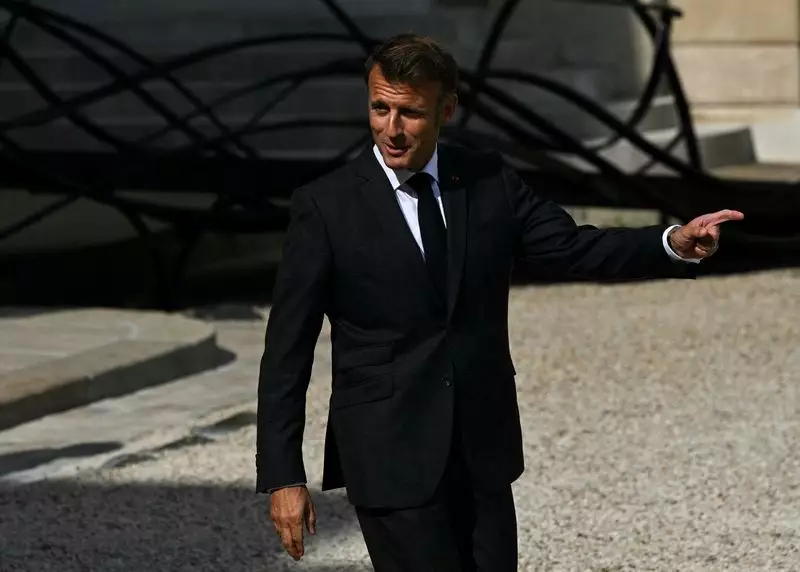Serbia’s President, Aleksandar Vucic, is set to meet with French President Emmanuel Macron in Belgrade to discuss various important issues. Among these topics are the potential purchase of Rafale fighters made by Dassault Aviation, as well as cooperation in the fields of energy and artificial intelligence. This visit comes amidst Serbia’s efforts to navigate its path towards European Union membership while maintaining close ties with both Russia and China.
Serbia finds itself in a unique strategic position, balancing relationships with the East and the West. This was highlighted by the recent visit of Chinese President Xi Jinping and the upcoming visit of French President Macron. Macron emphasized in an op-ed piece that Serbia’s future lies within the EU and that maintaining an independent posture can only be achieved under the auspices of the European Union.
One of the key discussions during Macron’s visit will be the potential purchase of Rafale fighters by Serbia. President Vucic highlighted that there are unresolved issues concerning the purchase, with certain guarantees being a point of contention. This purchase is not merely a military transaction but also holds significant political implications, signaling a departure from previous Soviet-Russian influence.
Despite efforts to diversify its energy sources, Serbia remains heavily dependent on Russian gas. This dependence has implications for its foreign policy, as Serbia has the Kremlin’s support in its stance against the 2008 independence of Kosovo. While Belgrade has curtailed military cooperation with Moscow following the Ukraine invasion, it has refrained from imposing sanctions on Russia, unlike other Western countries.
Before Serbia can join the European Union, it faces a series of challenges. These include improving democracy, rule of law, judiciary, combating corruption, red tape, and organized crime. Additionally, Serbia would need to align its foreign policies with those of Brussels, including potentially introducing sanctions against Russia. This presents a complex balancing act for Serbia as it navigates its EU membership bid while maintaining its relationships with Russia and China.
During Macron’s visit, the two countries are expected to sign various agreements in the fields of energy and artificial intelligence. This underscores the potential for closer collaboration between France and Serbia in these key areas. Ultimately, Serbia’s ability to successfully balance its relationships with both the East and the West will play a pivotal role in shaping its future geopolitical position.

